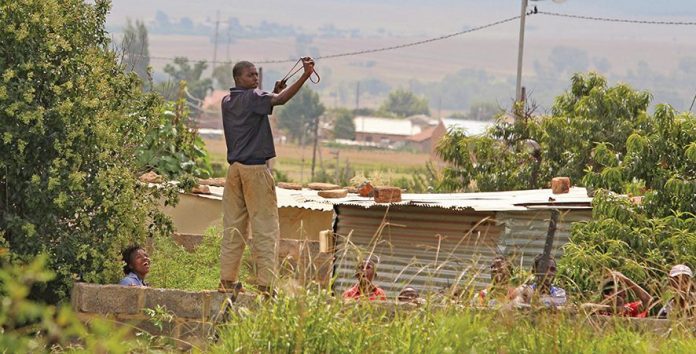Johannesburg – This past week marked the 25th anniversary of the adoption of South Africa’s liberal democratic constitution.
Ironically, it is the same week in which the governing ANC failed to secure a two-thirds majority in the National Assembly to revise the constitution in order to enable the government to fast-track land transformation.
It is a remarkable anomaly that on the 25th anniversary of the constitution, the National Assembly was revising section 25 of the document.
South Africa’s history is built on the dispossession of black people’s land, livelihood and identity by a white minority regime.
Therefore, the drafting process was not an innocent and independent one.
It was a contestation between forces seeking to preserve apartheid’s legacy post ’94, and those seeking to transform its legacy post ’94. Section 25 of the constitution captures this contestation: “No one may be deprived of property except in terms of law general application, and no law may permit arbitrary deprivation of property.”
While the constitution sets out several rights that can be enjoyed by many South Africans, the essence of it is the rules that govern the protection of the gains of apartheid and the quest for transformation.
In this instance, the constitution may be more useful to those with the resources and the technical know-how to interpret it in their favour, particularly before the courts. In essence, the constitution may be biased in favour of the beneficiaries of the apartheid legacy.
The failure to adjust section 25 of the constitution by the National Assembly may give credence to the criticism that the constitution benefits the white minority more than the black majority.
It may also mean that all the institutions, systems and processes that flow from this constitution are equally geared towards the contestation either for the preservation of the apartheid legacy, or the quest for transformation.
In this regard, the National Assembly may also have emerged as an institution where transformation may ironically be frustrated by the constitution.
The stalling of the land restoration and redistribution using the very same constitution that sought to be the instrument of transformation necessitates a reflection on the utility of this constitution.
In this regard, to what extent does it advance the quest for the liberation and freedom fought for over decades?
Is the constitution a progressive or a conservative document? On what basis has this constitution been christened the “best in the world” even as it is equally used to stall transformation?
The majority of South Africans impoverished and marginalised by apartheid have always associated democracy with improved living conditions.
Therefore, the main democratic document, the constitution, must give effect to this desire by the masses.
The rights contained in the constitution must progressively improve the living conditions of black people, and restore their dignity.
This is the value that South Africa’s constitution must carry. It must give expressed meaning to the freedom and dignity of all South Africans regardless of economic status.
To read more political news and views, click here.
Follow @SundayWorldZA on Twitter and @sundayworldza on Instagram, or like our Facebook Page, Sunday World, by clicking here for the latest breaking news in South Africa. To Subscribe to Sunday World, click here.



